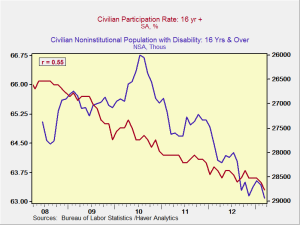Is it possible to predict the stock market? As usual, it depends on what you mean. If you mean determining where the market will close today or tomorrow, or what a particular stock will do next week, the answer is no. It’s when you get into longer time frames, or larger portfolios, that things get interesting.
It also depends on what you mean by “predicting.” Are you, for example, looking at calling an exact number or just seeking an idea of likely outcomes? If the former, you’re out of luck; if the latter, you can probably make some headway.





